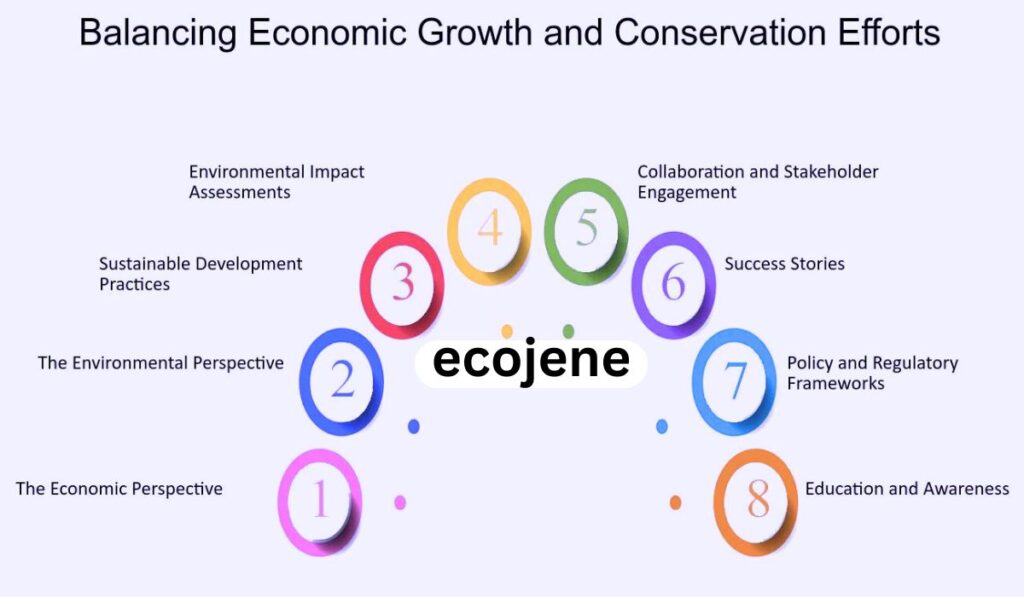In the ever-evolving narrative of human civilization, the pursuit of progress and preservation often stands at odds. As we stride forward into an era marked by technological advancements and unprecedented growth, the pressing need to safeguard our environment has become more pronounced than ever before. The delicate balance between progress and preservation forms the crux of what can be termed as the “Eco-Equation.”
At its core, the Eco-Equation represents the intricate interplay between human development and environmental conservation. It encapsulates the fundamental truth that our actions today have profound implications for the well-being of future generations and the planet as a whole. Achieving equilibrium in this equation requires a paradigm shift in our approach towards development—one that harmonizes economic prosperity with ecological sustainability.
Central to the concept of the Eco-Equation is the recognition that the Earth’s resources are finite and fragile. From pristine forests to biodiverse ecosystems, our planet teems with life-sustaining elements that warrant careful stewardship. Yet, the relentless pursuit of industrialization and urbanization has often exacted a heavy toll on these natural assets, leading to deforestation, habitat destruction, and biodiversity loss.
Moreover, the specter of climate change looms large on the horizon, fueled by greenhouse gas emissions and unsustainable consumption patterns. The warming of our planet poses an existential threat not only to vulnerable ecosystems but also to human communities worldwide. Rising sea levels, extreme weather events, and disrupted agricultural systems are just a few manifestations of this global crisis.
In light of these challenges, the Eco-Equation beckons us to recalibrate our priorities and adopt a more holistic approach towards development. It advocates for the integration of environmental considerations into every facet of policymaking, business strategy, and individual behavior. Rather than viewing conservation as an impediment to progress, we must recognize it as a prerequisite for long-term prosperity.
One pillar of the Eco-Equation is the promotion of sustainable practices across industries. From renewable energy to green infrastructure, technological innovations offer a pathway towards decoupling economic growth from environmental degradation. Embracing clean energy sources, improving resource efficiency, and implementing circular economy principles can help mitigate our ecological footprint while fostering economic resilience.
Furthermore, the preservation of biodiversity emerges as a cornerstone of the Eco-Equation. Protecting critical habitats, restoring degraded landscapes, and combating wildlife trafficking are essential endeavors in safeguarding the web of life. By preserving biodiversity, we not only conserve invaluable genetic resources but also enhance ecosystem resilience and ensure the provision of ecosystem services vital for human well-being.
Education and public awareness constitute another vital component of the Eco-Equation. Empowering individuals with knowledge about environmental issues and sustainable practices fosters a sense of environmental stewardship and collective responsibility. Through education, we can cultivate a culture of sustainability that permeates all levels of society, inspiring action and driving positive change.
Ultimately, achieving balance in the Eco-Equation requires a concerted effort from all stakeholders, including governments, businesses, civil society, and individuals. Collaboration, innovation, and a shared commitment to the well-being of the planet are indispensable in navigating the complexities of the modern age. By embracing the principles of sustainability and recognizing the intrinsic value of nature, we can chart a course towards a future where progress and preservation go hand in hand.
In conclusion, the Eco-Equation represents a call to action—a call to transcend the false dichotomy between progress and preservation and forge a new path forward. By embracing sustainability as a guiding principle, we can reconcile our quest for development with our duty to protect the natural world. In doing so, we not only safeguard the planet for future generations but also ensure a more prosperous and harmonious coexistence with all life on Earth.


